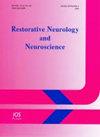2019冠状病毒病大流行期间社会支持对尼日利亚互联网用户心理健康的影响
IF 1.6
4区 医学
Q4 NEUROSCIENCES
引用次数: 1
摘要
本研究调查了尼日利亚互联网用户在COVID-19大流行期间社会支持对心理健康的作用。共有106名参与者(女性55名(51.9%),男性51名(48.9%))参加了这项研究。参与者年龄19-29岁,平均年龄28.68岁,标准差8.14岁。参与者采用方便抽样法抽取,数据采用在线谷歌表格法整理。该调查的链接在不同的平台上共享,如Facebook、Whatsapp和电子邮件列表。参与者通过在在线调查中勾选一个方框来表示他们同意并愿意参与。数据收集使用了两种仪器,分别是;15项社会支持问卷(COVID-19- SSQ)和华威-爱丁堡心理健康量表(AWEMWBS)。测试了两个假设。本研究采用横断面设计,数据分析采用回归分析。研究结果表明,社会支持的存在对心理健康的存在有显著影响。建议维持社会支持因素,因为它对尼日利亚互联网用户在COVID-19大流行期间的心理健康具有缓冲作用。本文章由计算机程序翻译,如有差异,请以英文原文为准。
Impact of Social Support on Mental Wellbeing among Internet Users In Nigeria During Covid-19 Pandemic
This study investigated the role of social support on mental wellbeing during COVID-19 Pandemic among internet users in Nigeria. A total of one hundred and six (106) participants (55 (51.9%) females, and 51 (48.9%) males participated in the study. The participant ages ranged from 19-29 years with a mean age of 28.68 and standard deviation of 8.14. Participants were drawn using convenience sampling technique and data were collated using the online Google form method. The link to the survey was shared across different platforms such: as Facebook, Whatsapp, and email list. The participants gave their consent and willingness to participate by checking a box in the online survey. Two instruments were used in data collection namely; a 15-item COVID-19 social support questionnaire (COVID-19- SSQ) and Warwick-Edinburgh Mental Well-being Scale (AWEMWBS). Two hypotheses were tested. The study adopted cross sectional design, while regression was employed for data analysis. The findings indicate that the presence of social support has significant influence on existence of mental wellbeing. It is recommended that social support factor should be sustained because of its buffer effect on mental wellbeing during COVID-19 Pandemic among internet users in Nigeria.
求助全文
通过发布文献求助,成功后即可免费获取论文全文。
去求助
来源期刊
CiteScore
5.40
自引率
3.60%
发文量
22
审稿时长
>12 weeks
期刊介绍:
This interdisciplinary journal publishes papers relating to the plasticity and response of the nervous system to accidental or experimental injuries and their interventions, transplantation, neurodegenerative disorders and experimental strategies to improve regeneration or functional recovery and rehabilitation. Experimental and clinical research papers adopting fresh conceptual approaches are encouraged. The overriding criteria for publication are novelty, significant experimental or clinical relevance and interest to a multidisciplinary audience. Experiments on un-anesthetized animals should conform with the standards for the use of laboratory animals as established by the Institute of Laboratory Animal Resources, US National Academy of Sciences. Experiments in which paralytic agents are used must be justified. Patient identity should be concealed. All manuscripts are sent out for blind peer review to editorial board members or outside reviewers. Restorative Neurology and Neuroscience is a member of Neuroscience Peer Review Consortium.

 求助内容:
求助内容: 应助结果提醒方式:
应助结果提醒方式:


